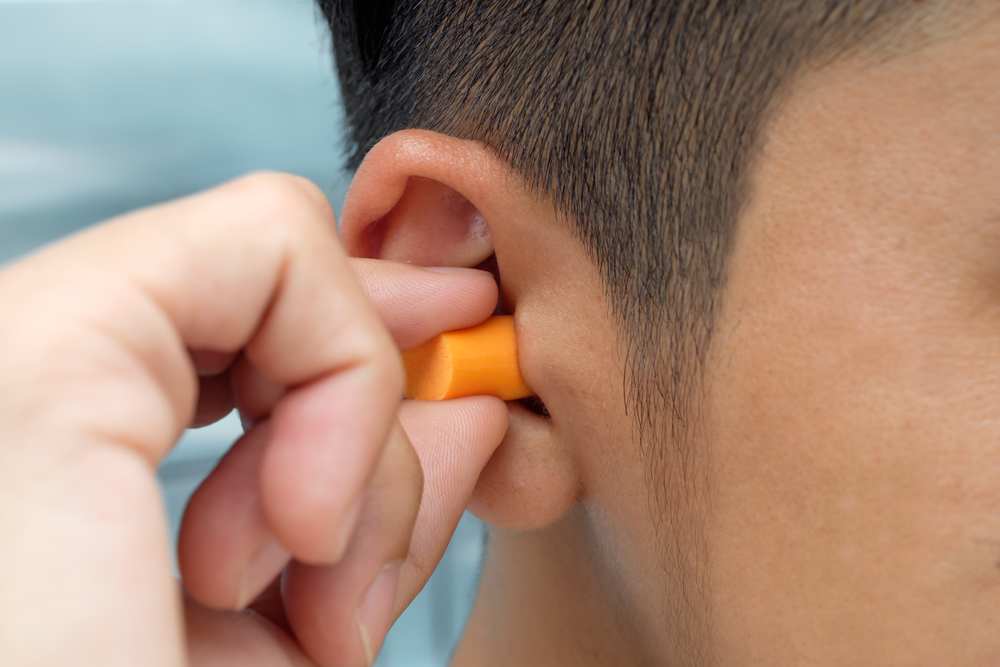Posted on: Apr 20, 2016

Hearing is undoubtedly the most important thing any musician possesses, without it, your profession and key interest are essentially finished.
Unsurprisingly, musicians are more susceptible to noise-induced deafness than most, with a recent German study showing that 57% of professional musicians are more likely to suffer tinnitus as a result of their jobs than anyone else.
At London Speaker Hire we want performers to have a prolonged, healthy and productive musical career. So if you are a musician and haven’t considered how your hearing could become damaged, listen up while you still can.
See below our 10 ways to protect your hearing as a musician.
Rehearsal Volume
Trying to save your ears when onstage is obviously tricky, but it is something you can help when rehearsing, especially if you work in electrical instruments.
Subjecting yourself to high levels of output on stage has its purposes and is less avoidable, but there is no reason to do so in the closed space of rehearsals. Bring levels down to a reasonable volume and use headphones when possible.
Earplugs
The common misconception with earplugs is that they completely block out all noise. While they are designed to reduce the sound your ears are subjected to, they aren’t a total block.
Increasing amounts of musicians have adopted the use of earplugs in recent years. This is because it is one of the most consistent ways to keep tinnitus at bay while still allowing you to hear clearly to perform.
Stage Positioning
One very simple measure to take when on stage or even watching a gig is to position yourself away from the speakers.
A simple rule to follow is if you can feel the bass in your rib cage, you’re probably too close. Instead, stand away and to the side of the output, so you are not directly in line with the full force of the amp/speaker.
Reduce Device Volume
As a musician, you are exposed to more consistently loud music than most people, so you really need to make the most of your downtime.
If you listen to your iPod (or similar device) frequently, try cranking down the volume a little to give your ears as much of a rest as possible.
Rest Your Ears
Take even further precautions by resting your ears whenever possible. Between gigs, try and wind down by avoiding other gigs or performances that might contain excessive sound.
While it might be fun to check out a bucket full of other bands when you are at a festival, it might be better for your hearing to cut the amount in half.
Get Your Ears Checked
So many musicians assume their hearing is fine because they haven’t suddenly gone deaf one morning, in fact, it is much more progressive than that.
Read this helpful piece on tinnitus from Slide Share and consider if you have any symptoms. If you feel you might, book an appointment with your doctor in the near future.
Buy A Sound Meter
If you have been performing for a long time and have never used things like ear plugs, you might not be aware how much damage you are doing to your ears.
A great way to do this is to invest in some sound level meters to see what you are regularly subjecting your ears to. As a general rule, anything over 100dB is pretty harmful over prolonged periods of time.
This post from New Orleans Music Clinic is great in explaining how many decibels you can subject your ears to before damaging your hearing over different periods of time.
Plan Rehearsal Times
With the last point in mind, it is important to space out the periods of time in which you are going to be around excessive sound for a given length of time.
Perhaps schedule rehearsals in blocks of half hours instead of enduring a couple of hours straight could be a decent option.
Enjoy Antioxidants
One of the stranger ways to combat your potential hearing loss is to consume plenty of antioxidants, especially before you head out onstage.
In recent studies, when administered before exposure, antioxidants have proven to boost ear defence.
You can pick up supplements like this from any high street chemist.
Be Cautious
While prevention is the best approach, there is no guaranteeing that damage hasn’t already been done.
If something doesn’t seem like it used to, you turn volume up louder than you used to or you have a consistent ringing in your ears after gigs, don’t hesitate to see a doctor.
If there is something wrong, it is better to nip it in the bud now rather than wait till it deteriorates further in the future.
Category: general